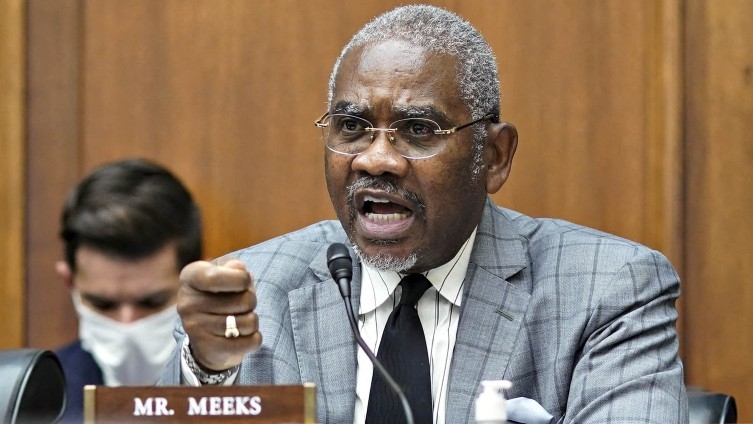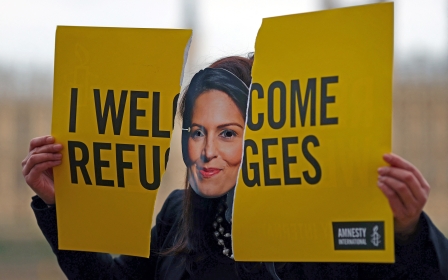US lawmakers urge Biden to prevent Arab normalisation with Syria

A bipartisan group of US lawmakers have called on President Joe Biden to prevent Syrian President Bashar al-Assad's government from reintegrating into the international community.
Their letter, sent on Tuesday by Congressmen Gregory Meeks, Michael McCaul, and Senators Bob Menendez and Jim Risch, further called for a briefing by the administration on its Syria policy.
They also raised concerns that a number of Washington's allies in the Middle East are continuing to normalise relations with Assad without any meaningful pushback from the US.
"We are concerned that a number of our Arab partners continue to increase their formal and informal relationships with the Assad regime, including the establishment of official diplomatic outposts and publicly released diplomatic overtures," the lawmakers said.
The senators and congressmen called on Biden to create consequences for any country seeking to normalise ties with the Assad government.
"Tacit approval of formal diplomatic engagement with the Syrian regime sets a dangerous precedent for authoritarians who seek to commit similar crimes against humanity," they said.
Syria was expelled from the Arab League at the beginning of the Arab Spring protest movement in 2011, following the outbreak of the country's civil war, sparked by the brutal repression of anti-government protests. The war has killed an estimated 500,000 people and displaced millions.
For years Syria has been isolated from the international community, but in recent years, several Arab countries have restored diplomatic relations with Syria, allowing it to reenter the regional fold.
The United Arab Emirates led the way, reopening its embassy in Damascus in December 2018, after cutting ties in 2012. Oman returned an ambassador to Syria last October.
One of the biggest steps to date has been the announcement that Damascus would host the Arab Energy Conference in 2024, bringing together members of the Organization of Arab Petroleum Exporting Countries (OAPEC) in the Syrian capital.
Individual Arab countries have also been reaching out to Syria, with Jordan's King Abdullah having a phone call with Assad, and the United Arab Emirates' Foreign Minister Sheikh Abdullah bin Zayed making a visit to Damascus last November.
In September, the Biden administration made it clear it had no plans to normalise or upgrade ties with the Syrian government.
Still, the administration itself has been accused of softening its position on the Syrian government, especially after pushing a plan to provide gas and electricity to Lebanon via Syria. Middle East Eye previously revealed how this would allow Assad's government to obtain transit fees as well as sanctions waivers.
Biden was also attacked by Republican members of Congress in June for the lifting of sanctions on businesses owned by a Syrian entrepreneur linked to Assad.
"Given Assad's horrific crimes against the Syrian people, the United States has long maintained that the international community cannot reintegrate the Syrian regime without meaningful reforms that demonstrate accountability and reflect the will of the Syrian people," the lawmakers said in Tuesday's letter. "We urge your Administration to reinforce that position."
As a part of the recently passed National Defense Authorization Act of 2022, the Biden administration is required to share its efforts in preventing Arab countries from establishing relations with Syria's government.
Middle East Eye propose une couverture et une analyse indépendantes et incomparables du Moyen-Orient, de l’Afrique du Nord et d’autres régions du monde. Pour en savoir plus sur la reprise de ce contenu et les frais qui s’appliquent, veuillez remplir ce formulaire [en anglais]. Pour en savoir plus sur MEE, cliquez ici [en anglais].





